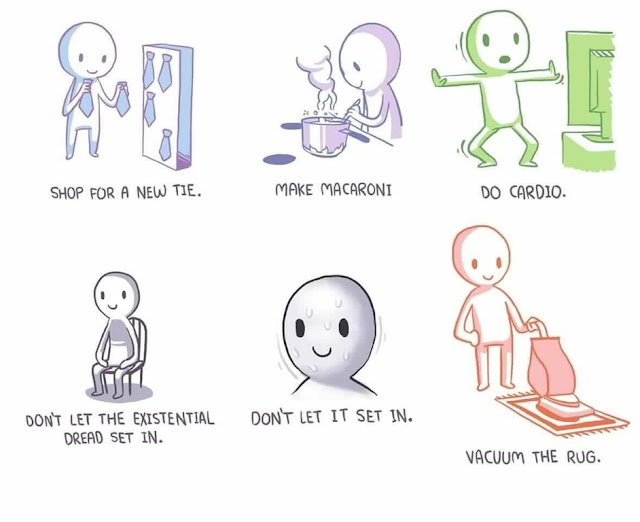Th[e] substance and properties view, held by philosophers from about the fourth century BC until the 1780s, tends to focus on how people think and know. This view sometimes reduces individual identity to a conceptual framework, including retention of past events in memory and contemplation within a rational scheme. The advantages of this view for genealogy are that it supports concepts of genealogical identity and different attributes of each personal substance. The disadvantages are challenges in specifying an identity and accounting for change. Philosophical and neurobiological reasons raise questions about identity after traumatic events. The substance view also ignores social objects (created by society), and it is weak in its accounting for events.
Alternatively, humans can be viewed as passionate and emotional beings. Individuals can visualize their identities as life narratives involving an overarching rhythm acquired, expressed, lived, and told from their life experiences. Identity arises from encounters in living and in acting in unique impassioned relation to specific events, times, and places. Each individual is a unique blend of emotions and passions. (10)
The article goes on to discuss ontology and etymology, which have been subjects of an ongoing discussion I have been having with my husband for the past year about truth and how we can know it. It’s a fascinating discussion, and I have discovered myself coming back to these thoughts over and over. This article was really fascinating to me, and you should read the whole thing. The TLDR conclusion:
Unlike practitioners of other disciplines, genealogists have not considered philosophy. For genealogists to acquire deeper insight into their most basic assumptions and concepts and deepen genealogy’s theoretical foundation, that interaction should occur.
This ontological framework can serve as a foundation for understanding the discipline of genealogy. The framework’s key elements are objects, relations, qualities, and events. It may shape future theoretical thought about genealogy. It lays the groundwork for considering the field’s basic concepts, for example, genealogical identify. The framework also suggests how to approach genealogy epistemology, and it has implications for genealogical methodology. It prepares for grounding the Genealogical Proof Standard. (18)
And so, I will take Hatton’s challenge and attempt to write about my own personal Philosophy of Czech Family History Research.
I know for sure that part of “why” I research my Czech ancestors has to do with understanding myself better. This comic sums up my brain pretty well:
- How did my 18th century Czech grandmothers deal with their menstrual periods? Or did perpetual pregnancy make this a non-issue? (ha. ha. Very punny) What material(s) did they use to clean the blood? Did they, like my Mayflower American ancestors, ritually isolate themselves from men in a cave outside the community for several days, or is that a completely ridiculous thought considering that Czechs in the 18th century were far more technologically advanced than the puritans of 1620’s Massachusetts?
- What did my Czech grandmothers think when they learned they were pregnant? Did the ridiculously high infant mortality rates cause them to worry about the pregnancy? Were they nervous that their child would die before baptism and thus be lost forever in purgatory (am I even understanding this doctrine correctly?)? When they found out they were pregnant, were they generally far enough into their pregnancy that it was out of the question to consider a medicinal (or mechanical!?) abortion? Or would that have even crossed the minds of the majority of these women?
- Thousands of questions about the sexuality of my ancestors: When, where, and how often did they have sex? How was it logistically possible for them to be intimate without privacy? What was their concept of privacy, anyway? How does it differ from my perception of it? When did they learn about their sexuality? I imagine it was not the Great Prudish Victorian Secret it has devolved into in American culture; the fact is that you can’t live an agrarian lifestyle with animals and not know about the physical mechanics of sex.
- How were women perceived, valued, and treated in Czech culture? Does Czech sexism exist and if so, what does it look like? This is a question that deeply intrigues me. I am finally getting some answers through the painfully slow translation of some books on Czech historical demography and culture, and I intend on sharing what I learn on this blog so that you do not have to go through the same excruciating process. My observations of modern human interactions while in the Czech Republic, the way language was used in Czech documents, Czech art, music, clothing, and even architecture – all of these lead me to this hypothesis: the sexism of my world is not the same as the sexism in the Czech lands. The experience of being a Czech woman in the 19th century would have been extremely different from that of English or American women at the same time. Perhaps the oppressive struggle for solvency served to unite families instead of divide them into specific, dehumanizing gender roles. And obviously this is also a paradox for me, because I do believe in gender roles: I just don’t think that they involve wearing corsets, submitting to the missionary-position sexual appetite of a man, or for my generation, “being pregnant and barefoot in the kitchen.” I mean…!!!!!!!!!
- To learn about who I am
- Because it brings me joy
- To perform temple work for them
- To connect with other people interested in the same thing
- To learn truth. Because truth is good.

